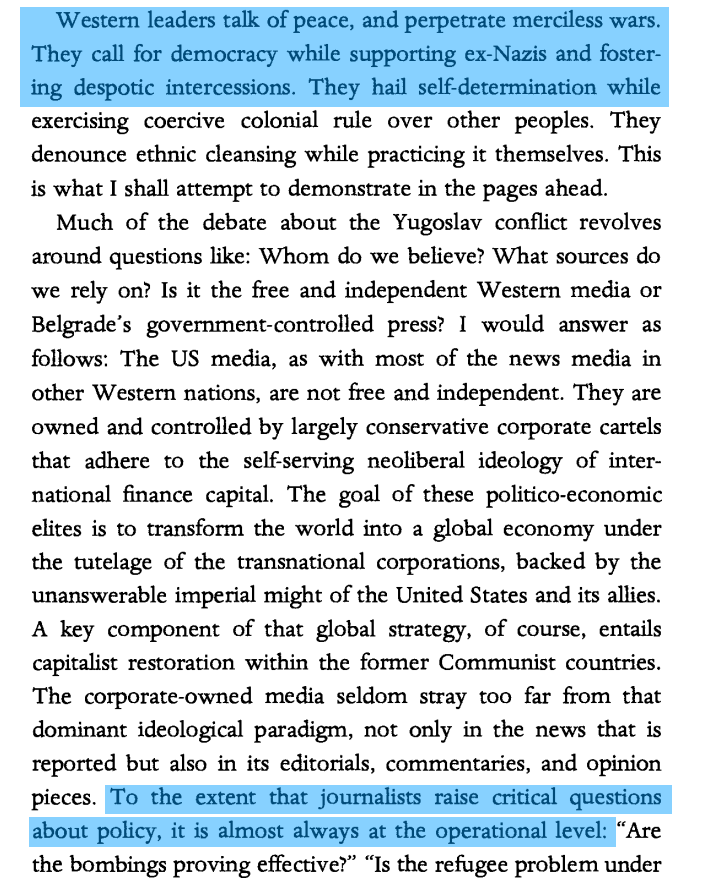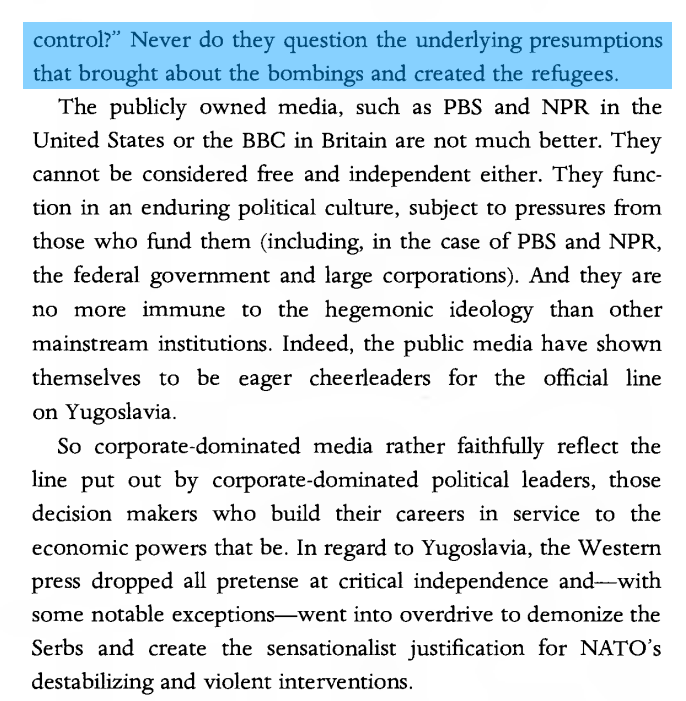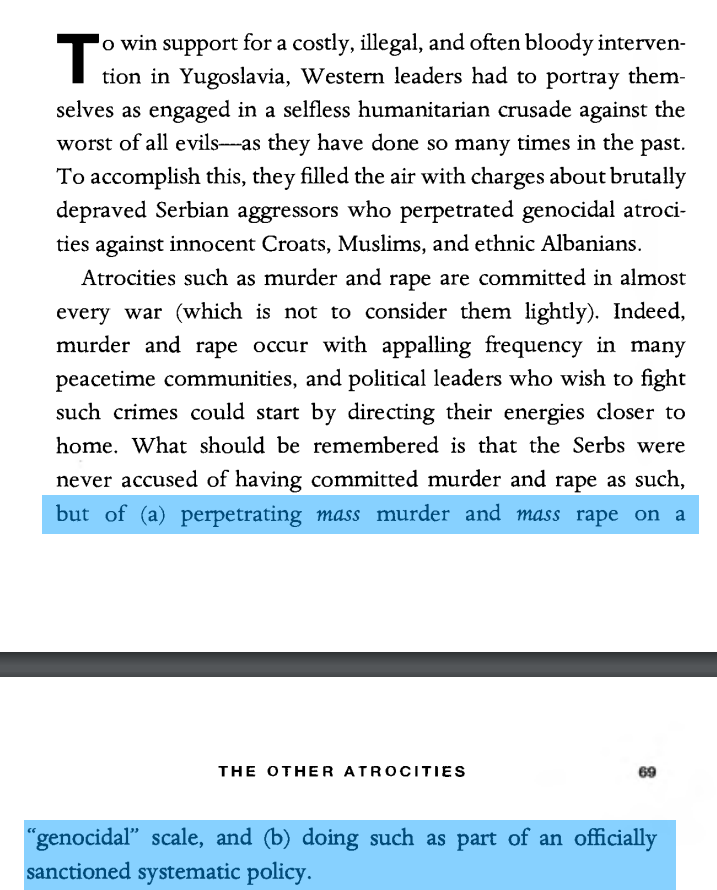Two decades ago, Michael Parenti published his book "To Kill A Nation" concerning the attack on Yugoslavia. Reading it today, one is reminded about Karr's expression of "the more things change, the more they stay the same." Excerpts following: 





On the nature of the "intervention" (that's one of the many euphemisms for Western wars), he calls out the obvious #DoubleStandards. The West is really good at those and mainstream media (mostly) follows suit. A systemic problem, even today, ~20 years later. 



He lists all the measures, goals and outcomes that were forced on Yugoslavia due to its dependency from Western loans. To be fair, this dependency required somebody to walk into a trap, ignoring some warnings. 





Mind you, these things took place before the war but they contributed massively to the loss of social and economical cohesion in the Federal Republic
of Yugoslavia (FRY). #Serbia resisted.
of Yugoslavia (FRY). #Serbia resisted.

Another familiar element begins to develop, internal splits and competition, marketed as "self-determination." Again, twenty years later, the playbook hasn't changed, neither did the outcome. Seeing how my own Country, #Germany, played a massive role, makes me more than sad. 





To get the narrative starting, one has to paint the same old good/evil-split that we came to know from every Western war so far. Yugoslavia was no exception. By this, you cannot just use "ordinary" terms and phrases, you have to go for superlatives. Emotional aim. 

This isn't to say that there "was no there there" but that the high contrast picture of the prelude of a war, in almost all cases, will come apart to form a grey mass once you get to look closer. Still, the Serbs were on the (short) list of bad guys. Time to paint them red. 



Delving into the accusations, an action rarely performend by either individuals, let alone journalists, who have fallen victim to the "good vs. evil" play, does offer some insights though. 



One will not come out of war-like times with zero victims and an equal amount of evildoers, but one should refrain from "genocidal" phrases unless the proof is solid. Well, that's if one has the goal to actual inform people, as opposed to setting them up for what's to come. 

I don't want to post the whole book but certain stages are worth exposing due to their relevance in 2023 (and ongoing). Western patterns.
One of such stages is resembled by the formation of the "Kosovo Liberation Army" (KLA). Eerie similarities, don't you think?



One of such stages is resembled by the formation of the "Kosovo Liberation Army" (KLA). Eerie similarities, don't you think?




Now, with such a "freedom fighter" (NYT terminology!) force around, "Freedom™" surely is about to enter the field soon enough. One just needs some more events to overcome Western reservations towards war. 





As it happens when atrocities get reported in mainstream media, tenor and repetition pave the way and critical facts receive the label of "everybody knows" instead of "somebody actually can explain." The Racak event becomes fact, a last "diplomatic" attempt emerges. 





What's not to like about diplomatic solutions, given that they are diplomatic (=include a real choice) and actually solve things (=don't make them worse)? Well.. 







So there you have it: From a multi-ethnic nation living in peace and, at least some, prosperity over to social splits and armed militias to crimes against humanity and lack of proper reporting to a mock diplomacy demanding to part with resources and accept #NATO "or else."
There's more to read and write about how NATO conducted this illegal war but that is for another time since I think the gist comes down to this being just another example of the noble West, lead by the US, managing to enter conflicts they themselves have helped to create. q.e.d.
I've added the part on #NATO's war crimes and the lack of justice applied.
Find it here:
Find it here:
https://twitter.com/ParrotChecker/status/1647157528084758529?s=20
• • •
Missing some Tweet in this thread? You can try to
force a refresh










